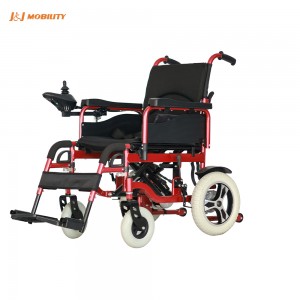14 Key Insights About Electric Wheelchairs
Electric wheelchairs are crucial for enhancing the convenience and independence of individuals with mobility challenges, including the elderly and children with physical disabilities. Despite their importance, there are aspects of electric wheelchairs that some children might hesitate to discuss with their parents. Here are 14 things your kids might not openly share about power wheelchairs:
Independence: Power wheelchairs can significantly boost a child’s sense of independence by allowing them to control their movements without relying on others.
Embarrassment: Some children might feel self-conscious about using a power wheelchair, fearing they might be ridiculed or judged negatively by peers.
Social Barriers: The use of a power wheelchair can sometimes lead to social hurdles, such as feeling excluded or restricted in social interactions.
Adjustment Needs: Power wheelchairs often require customization for comfort and functionality, like adjusting seat height or footrests. Kids might not like frequently making these changes.
Navigating Obstacles: Electric wheelchairs can struggle with tight spaces or obstacles. Children may be hesitant to share their difficulties with navigating everyday environments.
Charging Requirements: Regular charging is necessary to keep electric wheelchairs in good working condition. Children may be reluctant to discuss the need for frequent charging or related safety concerns.
Maintenance and Repairs: Power wheelchairs need periodic upkeep and repairs. Kids might avoid telling their parents about these needs, fearing they will be seen as a hassle.
Portability Issues: Some power wheelchairs are challenging to transport, especially during travel. Children might not express their frustrations about the limitations imposed by portability.
School Adaptation: Schools may pose unique challenges for power wheelchair users, including adapting to different environments. Children might not fully disclose these difficulties.
Driving Skills: Operating an electric wheelchair requires specific skills and practice. Children might be reluctant to admit they need more time to become proficient.
Activity Limitations: While electric wheelchairs offer greater freedom, certain activities or sports might still be out of reach. Children may not want to reveal these restrictions.
Financial Burden: The cost of power wheelchairs can be significant. Children may not want their parents to worry about the financial strain associated with these devices.
Physical Exhaustion: Extended use of a power wheelchair can lead to physical fatigue. Managing the wheelchair’s movement can be tiring, a fact children might not openly discuss.
Emotional Strain: Using a power wheelchair can also take an emotional toll, including dealing with prejudice or lack of understanding from others.
These concerns—ranging from embarrassment and social challenges to maintenance and financial issues—can make it difficult for children with physical disabilities to fully share their experiences. However, with J&J Mobility wheelchairs, many of these problems can be mitigated. Our focus on portable electric wheelchairs ensures ease of travel and addresses many of the common issues faced by users. With our wheelchairs, daily life can become more manageable and enjoyable.
Post time: Sep-11-2024


